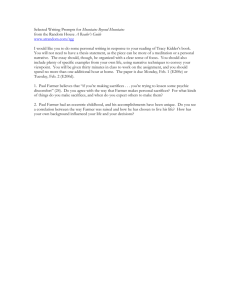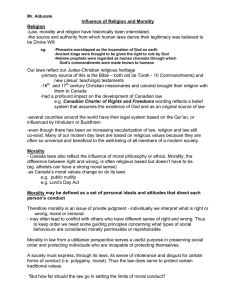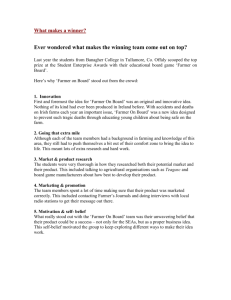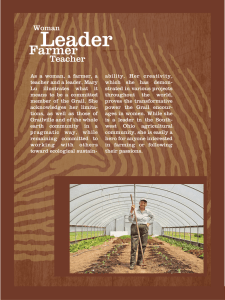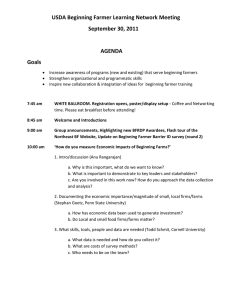minutes of moral saints discussion
advertisement
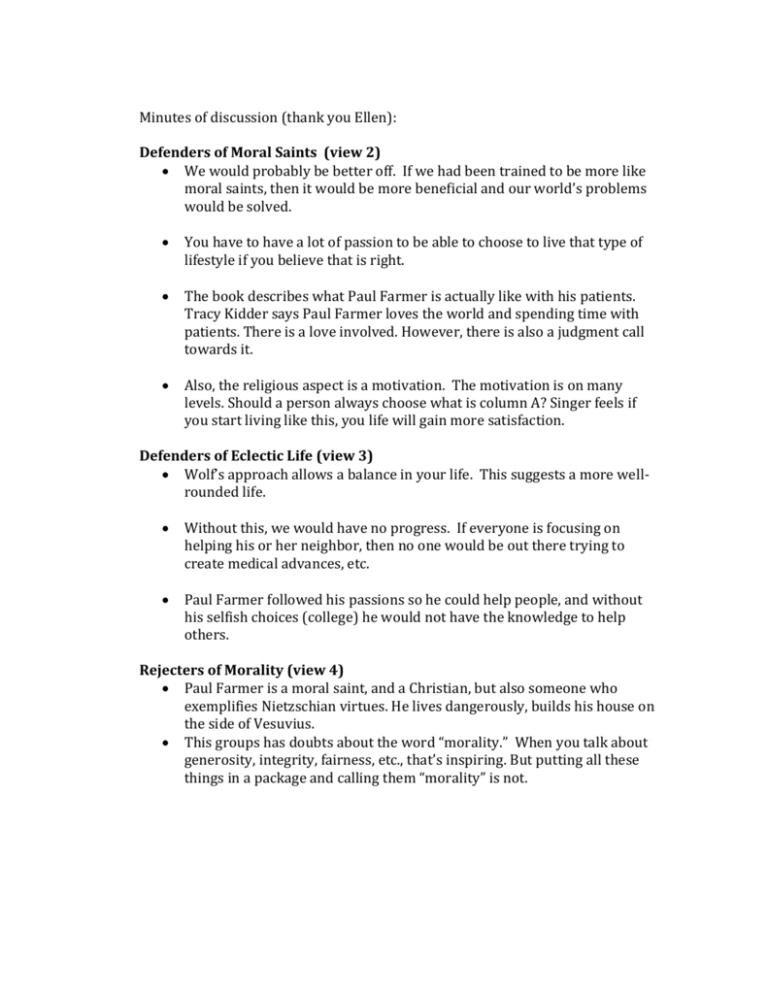
Minutes of discussion (thank you Ellen): Defenders of Moral Saints (view 2) We would probably be better off. If we had been trained to be more like moral saints, then it would be more beneficial and our world’s problems would be solved. You have to have a lot of passion to be able to choose to live that type of lifestyle if you believe that is right. The book describes what Paul Farmer is actually like with his patients. Tracy Kidder says Paul Farmer loves the world and spending time with patients. There is a love involved. However, there is also a judgment call towards it. Also, the religious aspect is a motivation. The motivation is on many levels. Should a person always choose what is column A? Singer feels if you start living like this, you life will gain more satisfaction. Defenders of Eclectic Life (view 3) Wolf’s approach allows a balance in your life. This suggests a more wellrounded life. Without this, we would have no progress. If everyone is focusing on helping his or her neighbor, then no one would be out there trying to create medical advances, etc. Paul Farmer followed his passions so he could help people, and without his selfish choices (college) he would not have the knowledge to help others. Rejecters of Morality (view 4) Paul Farmer is a moral saint, and a Christian, but also someone who exemplifies Nietzschian virtues. He lives dangerously, builds his house on the side of Vesuvius. This groups has doubts about the word “morality.” When you talk about generosity, integrity, fairness, etc., that’s inspiring. But putting all these things in a package and calling them “morality” is not.

